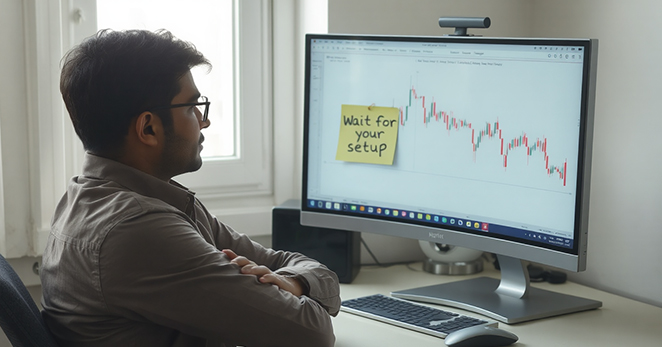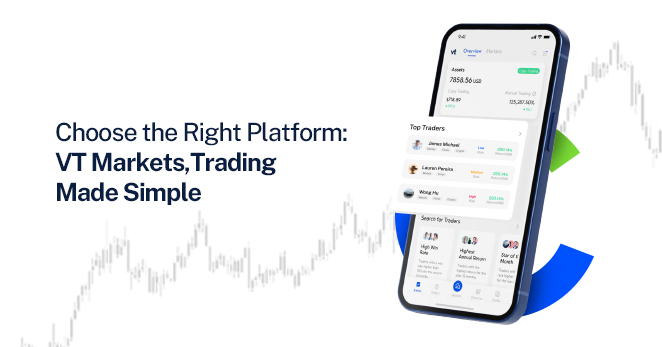
Have you ever felt your heart race before hitting “buy” or experienced the sting of a loss that lingered longer than expected? If so, you’re not alone. Welcome to the emotional war of trading psychology, a key factor in every trader’s journey, especially in the high-stakes, fast-moving world of Forex trading.
Trading is not just about numbers; it is about how well you execute things mentally. No matter how sophisticated your tools or strategies are, your ability to manage emotions like fear, greed, and overconfidence can be the real differentiator between success and failure. Let’s explore how to stay grounded during market highs and lows, how to avoid impulsive mistakes, and how to build mental discipline for better trading decisions.
The Emotional Side of Trading

Trading psychology is an essential yet often overlooked aspect of investing. It’s the study of how your emotions and mental state can influence your trading decisions. The euphoric rush of a successful trade can easily fuel overconfidence, while a sudden market drop might send you into panic mode. Understanding how these feelings influence your behavior is the first step toward mastering trading psychology.
Some of the most common emotional pitfalls include:
- Fear, especially fear of missing out (FOMO) or fear of loss, can lead to either impulsive trades or inaction.
- Greed tempts traders to stretch beyond their strategy in pursuit of bigger gains.
- Revenge trading, where losses spark reckless decisions to “win it back.”
- Overconfidence often follows a winning streak and may lead to overlooking risk.
These emotions can cloud judgment and derail even the most well-crafted strategies. But the goal is not to eliminate emotion but to manage it, to trade with clarity, not chaos.
Developing Emotional Control

How do successful traders manage their emotional responses in such a volatile environment? The answer lies in structure, self-awareness, and consistency.
Maintain a trading journal: Keeping a journal of all your trades, documenting the reasoning behind each decision, the outcomes, and your feelings at the time can be extremely valuable. Reviewing this journal allows you to identify emotional patterns and triggers, helping you learn from past experiences and make more thoughtful decisions in the future.
Set clear goals. Define your trading objectives, whether it’s long-term wealth accumulation or generating a specific amount of income. Having clear goals can serve as a guiding force, helping you stay focused and avoid making emotional decisions. For a better understanding of how effective goal-setting can enhance your financial journey, continue exploring.
Create a trading plan. A clear trading plan defines your strategies, risk tolerance, and criteria for entering and exiting trades. This plan acts as a roadmap, promotes disciplined trading, and helps reduce impulsive, emotion-driven decisions.
Stick to your plan: Once you have a plan, stick to it. It’s easy to be influenced by market hype or panic, but straying from your plan during these times can lead to regrettable decisions. Trust the strategy you have created, as it is grounded in rational analysis rather than fleeting emotions.
Making Better Decisions Under Pressure

Trading decisions made in emotional haste are often regrettable. That’s why it’s essential to adopt a process of rational decision-making.
Start by giving yourself time before acting. A brief pause can defuse emotional surges and allow logic to re-enter the conversation. Always cross-check your decision against your trading plan: Does it align with your risk tolerance? Is it a calculated move or an emotional reaction?
It also helps to seek a second opinion, be it from a mentor or a trading community. Talking through your logic with someone else can surface blind spots and break emotional echo chambers.
Using tools like stop-loss and take-profit orders can automate certain aspects of your strategy, alleviating the need for real-time decision-making. The more you depend on established, rational frameworks, the less influence your emotions will have.
Why Discipline and Patience Matter

Discipline and patience aren’t just virtues; they’re essential skills in trading. Discipline is what keeps you aligned with your trading plan, even when temptations arise. Patience helps you wait for optimal opportunities instead of chasing trades out of boredom or FOMO.
To build these traits, make it a habit to do your research. Don’t follow market hype blindly. Define your own rules for trading, such as acceptable risk levels and target profit margins, and stick to them.
Practicing mindfulness can be very effective. Taking regular breaks, meditating, or simply stepping away after a loss can help reset your emotional state and prevent impulsive behavior. When trades don’t go as planned, view them as learning opportunities—take the time to review, reflect, and refine your approach.
Finally, embrace realistic expectations. Not every day will be profitable. Markets go up and down. Accepting this reality can help you stay focused and grounded.
Bottom line

Mastering the markets begins with mastering yourself. Trading psychology is just as important as technical skills or market analysis. The ability to stay calm during chaos, stick to your plan, and learn from experience can transform not only your trading results but also your confidence.
VT Markets offers the right tools, education, and environment to support emotionally intelligent trading. If you’re ready to take control of your emotions, refine your strategy, and grow as a trader, consider starting your journey with us.
Ultimately, the most powerful trading tool is not the chart; it’s your mindset.







